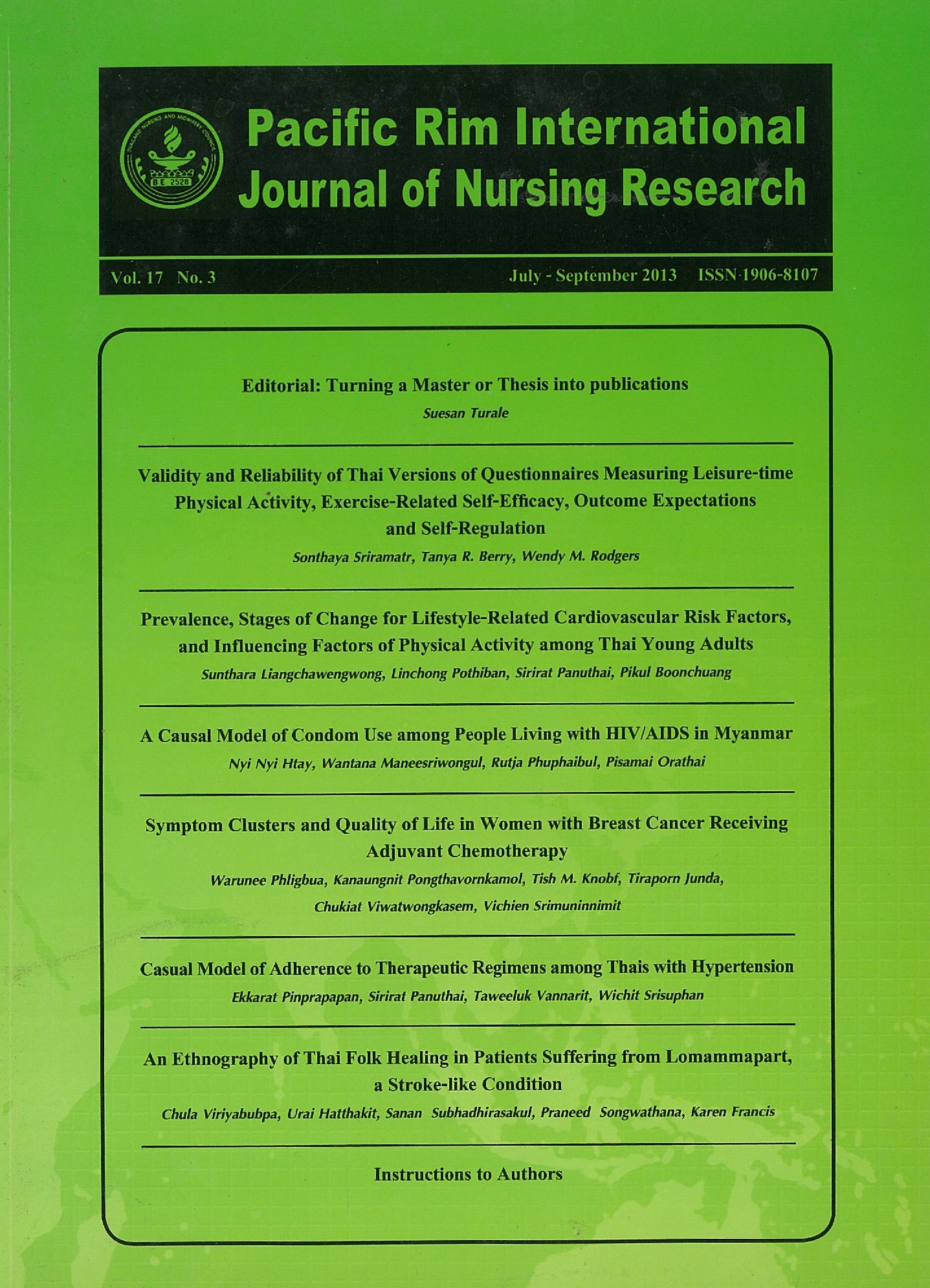Casual Model of Adherence to Therapeutic Regimens among Thais with Hypertension
Keywords:
hypertensive Thais, Causal model, Adherence, therapeutic regimensAbstract
This cross-sectional, predictive study examined factors, direct and indirect, affecting adherence to therapeutic regimens among Thais with hypertension. A hypothesized casual model, based on empirical evidence, was used to guide the study. This indicated the relationship between adherence to therapeutic regimens and significant predictors in persons with hypertension and other chronic illnesses. Multi-stage random sampling was employed to obtain a sample of 321 Thai persons attending four hypertension clinics in public primary hospitals in a province in northern Thailand. Data were collected via seven instruments, and analyzed using descriptive statistics, Pearsons’ product moment correlation coefficient and structural equation modeling using the Generalized Least Gquare technique in the LISREL program.
Results indicated that social support, provider-patient, health belief, and perceived self-efficacy explained 49% of variance in the subjects’ adherence to therapeutic regimens. Perceived self-efficacy, social support and provider-patient communication had a direct positive effect on their adherence to therapeutic regimens. Health belief and social support were found to have an indirect effect on adherence to therapeutic regimens via perceived self-efficacy. Knowledge of hypertension had no direct or indirect effect on the adherence to the rapeutic regimens but was affected by provider-patient communication. To improve adherence to therapeutic regimens among patients with hypertension, health care providers, including nurses, should recognize factors influencing adherence to therapeutic regimens. This includes social support, health belief, provider-patient communication and perceived self-efficacy.
Downloads
Published
How to Cite
Issue
Section
License
Copyright: The Pacific Rim International Journal of Nursing Research, Thailand Nursing & Midwifery Council has exclusive rights to publish, reproduce and distribute the manuscript and all contents therein.








.png)



